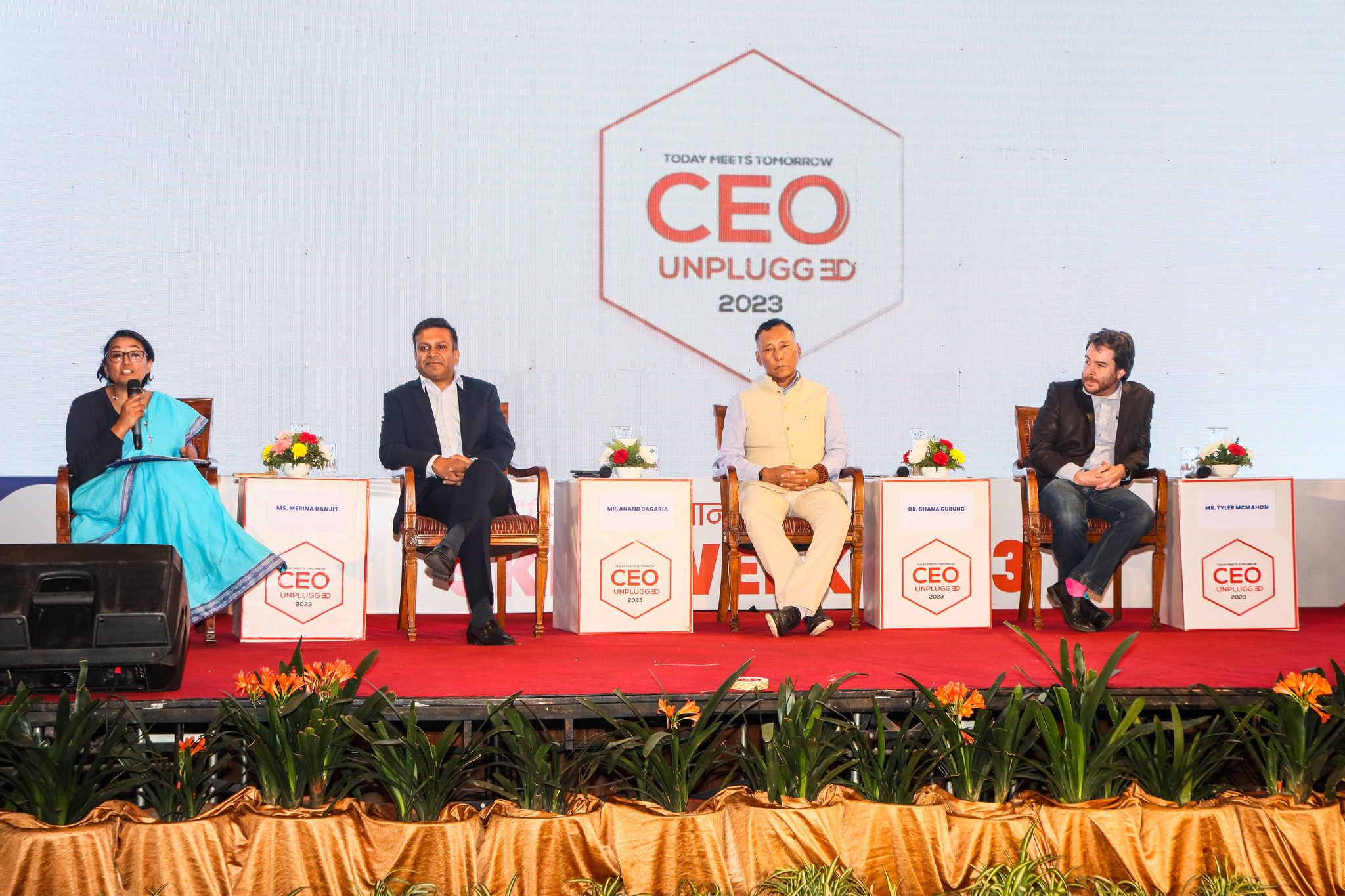CEO Unplugged is a yearly forum organized by Glocal Pvt. Ltd. comprising a series of panel discussions to establish a forum to discuss contemporary business challenges, opportunities, and futuristic views with a sight of experiential learning to the newcomers in the business and students with an objective “Today Meets Tomorrow”.
CEO Unplugged’s first panel conversed on the topic of ‘Sustainable Business for Green Economy’. The discussion focused on introducing Sustainable Business to young inspirations that operate in a way that is environmentally friendly and socially responsible, while also being financially viable.
The participating panelists were:
- Mr. Anand Bagaria, Managing Director, NIMBUS Group
- Dr. Ghana Gurung, Country Director, WWF Nepal ;
- Mr. Tyler McMahon, Founder & International Advisor, Smart Paani;
The panel discussion was moderated by Ms. Merina Ranjit, Chief Operating Officer, Chaudhary Group.
Here is the gist of the discussion;
Asking about ‘Sustainability’, Mr. Anand Bagaria defines sustainability as adding enough value to a business to sustain itself in various aspects, even during times of economic trouble. For a business to be sustainable, it must strike a balance between its resources and risk, ensuring a good margin and financial discipline. Bagaria’s team also considers global perception, such as climate change, clean rivers, and employee and societal satisfaction, which falls under the umbrella of Corporate Social Responsibility (CSR).
Dr. Ghana Gurung believes that sustainability involves connecting the past, present, and future of business, lifestyle, and progress. He questions whether what was sustained in the past can continue to be sustained in the present and future, with the growing population and limited resources. He highlights that the planet cannot survive if we continue to use its resources at the current rate, and that development has brought troubles to human life. Therefore, for sustainability, we must reflect on our lifestyle and resource consumption and ask if the planet can thrive with our current usage.
Mr. Tyler believes that achieving sustainability primarily focuses on the future, and that sustainable businesses are necessary to accomplish this goal. He emphasizes that discussions around sustainability should prioritize business decisions, as sustainability is a way of life.
Commitment to Sustainable Business Practices
When asked about his commitment to sustainable business practices and whether his own business is currently sustainable, Mr. Bagaria of Nimbus replied that they have taken measures to eliminate harmful pollutants and substances from their infrastructure to prevent contamination of the river. However, he acknowledged that every business wants to invest in profitable ventures, and despite government policies to promote sustainability, implementation can be unfair. He gave an example of his own refinery plant, which sells branded oil in the market and is the only one of its kind in Nepal. He noted that individuals frequently question his facility, while they do not scrutinize those who lack similar facilities.
Dr. Ghana Gurung asserts that sustainability is not just an option, but a necessity. Going against sustainability always leads to suffering. Furthermore, we can establish sustainable economics. Nepal is the sole country to have tripled the tiger population. These animals play a significant role in Nepal’s sustainable tourism industry. Polluted air and forests will not attract visitors to Nepal; the tigers are a vital attraction for sustainable tourism in Nepal.
Importance of Advocacy in Sustainable Business and Green Economy
Mr. Tyler stressed the importance of advocacy in sustainable businesses and the green economy when asked. He gave an example of climate bills in the US and Europe that passed due to years of advocacy. However, he also mentioned that there is sometimes a gap between advocacy goals and policy implementation by private sectors, as seen with the rainwater harvesting policy in Nepal. In Mr. Tyler’s opinion, advocacy is crucial for policy enactment and proper implementation.
When asked about the Nepalese economy and the potential for a green economy, Mr. Tyler responded that there have been numerous initiatives in Nepal related to hydropower and solar energy, as well as waste management startups that have gained traction. He believes that the country is making progress in terms of sustainable development, and while it may take time, people are becoming more aware of the importance of sustainability. Mr. Tyler also pointed out that Nepal has a unique opportunity due to its geography, population, and other factors.
Mr. Bagaria was asked about the actions that the government or policies should take to establish a green economy and the factors that would enable this. He responded by stating that he, as an industry professional, would implement suitable technology to prevent damage to the planet. He also suggested that it is crucial for all individuals to support companies that are using the correct technology to protect the environment. Additionally, he proposed that policy makers should incentivize those who make efforts for the planet and penalize those who do not, with the penalty exceeding the incentive.





